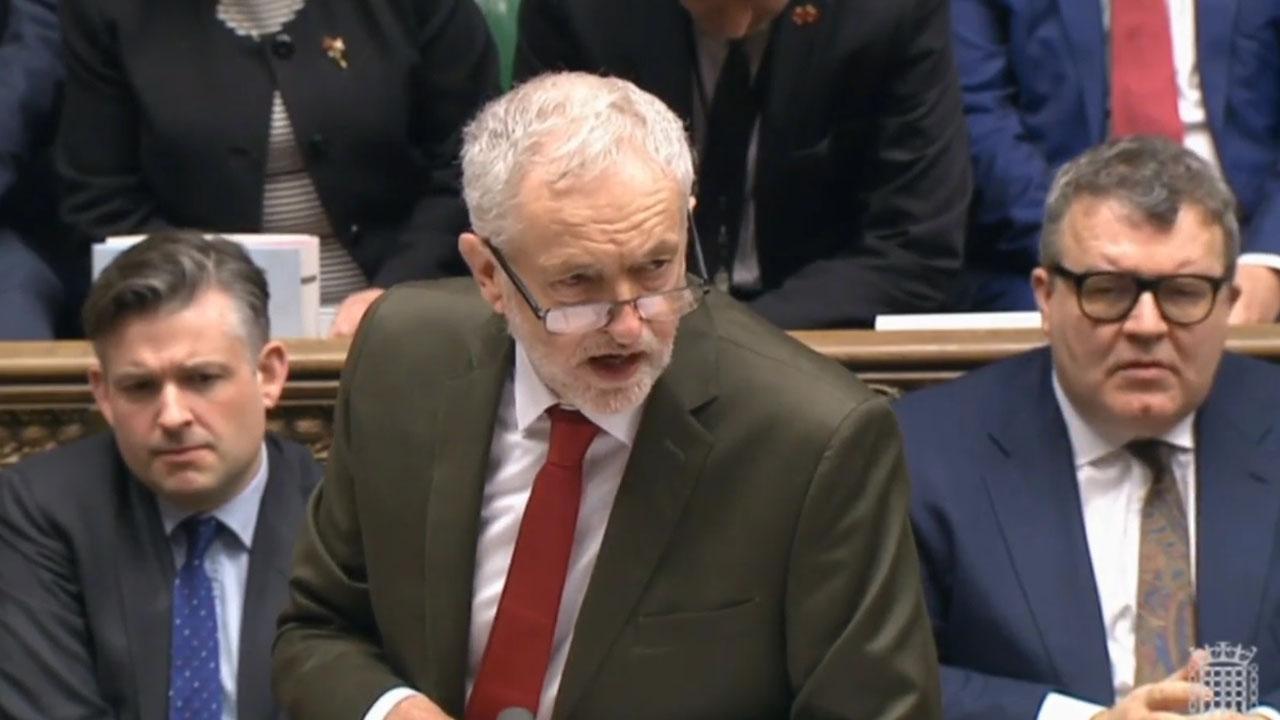
Theresa May wins overwhelming MPS’ support for a quick poll on June 8 but the Labour is not backing down
From Anthony OGBO and Nelly ONWUCHEKWA Reporting from London
International Guardian , Vauxhall – LONDON – British Prime Minister, Theresa May’s plan to hold an instant general election on June 8 received an overwhelmingly MPs backing earlier in the week, flagging off what might be a tense campaign moment. The House of Commons voted 522 votes to just 13 in favor of the poll. Traditionally, Mrs. May needed a two-third majority of MPs to scale through her proposal – most surprisingly, she effortlessly passed the 434 required votes with the support of Liberal Democrats and Labor, whereas the SNP abstained.
Mrs. May stunned her nation shortly before noon Tuesday, announcing an early general election, to be held on June 8, 2017 – three years ahead of scheduled elections, which were due in May 2020. May’s move surprised the British population because she had said multiple times that she wouldn’t call an early election. Mrs. May’s argument was considerable. She said that, “The only way to guarantee certainty and security for years ahead is to hold this election”. While the government is already in a strong position, having successfully triggered Article 50 of the Treaty on European Union (which begins the formal process of exiting the EU), analysts predict that a vigorous summer victory at the polls would further reinforce May’s regime and boost her prime ministerial mandate.

Opposition however differ, accusing the PM of failing to keep her own words. For instance, The Labour leader, Jeremy Corbyn objected bitterly depicting Mrs. May’s proposal as betrayal of trust. Mr. Corbyn said he welcomed the proposed election but questioned Mrs. May’s U-turn on the issue; subjecting her near seven-year record in government as a proof that she could not be trusted.
The battle ground is set for an early summer showdown; a ballot which could offer the ruling Conservative Party an opportunity to significantly increase its working majority in the House of Commons. Currently, it stands at just 17, but recent polls suggest the Conservatives could lock in a sweeping victory in June, with a parliamentary majority as high as 68. To her advantage, Mrs. May’s personal approval rating far exceeds that of left-wing Mr. Corbyn, who has failed in recent times to excite his own base.
But Mr. Corbyn is not moved by the odd political wind. He is ready for a fight. Just yesterday, he appeared confident, setting the election tone by vowing to target the British establishment. He said he would defeat a “cosy cartel” at the heart of British politics, molding himself as the anti-establishment challenger; pledging to deliverer higher taxes on the wealthy; and cracking down on powerful corporations. A victory for the veteran left-winger would defy opinion polls already pointing to a heavy defeat.
In such a poll that leaves only a few weeks of electioneering engagements, Mr. Corbyn might have to battle to salvage control over his own divided Labor Party. He must be aggressive in taking advantage of a widespread voter frustration with the political elite.
The significance of a Britain’s general election to the United States ally remains an optimistic endeavor. A greater majority in the House of Commons this summer by the Conservative government would certainly fortify a US-British coalition. Analysts believe that an energized British government and prime minister with a powerful mandate from the British people would essentially reinforce a US-British relationship. In her first 10 months in office, for instance, Mrs. May has shown firm commitment to guaranteeing success of the Brexit. Furthermore, she has was able to establish a constructive working relationship with President Donald Trump.
As America’s most important friend and ally on the world stage, it is evident that the outcome of the polls in Britain will have a direct impact upon the United States and U.S. strategic interests.
On the contrary, a victory for the Labour Party would likely jeopardize the future of Brexit; and might ultimately complicate the relationship with incumbent Republican administration in Washington. As America’s most important friend and ally on the world stage, it is evident that the outcome of the polls in Britain will have a direct impact upon the United States and U.S. strategic interests. For instance, a victory for the Conservatives with an increased mandate would mean a robust US-UK alliance in the next few years. A collaboration that would boost an Anglo-American free trade agreement and advance prosperity on both sides of the Atlantic.
While Mrs. May touts her feat in possibly leading the machinations of the coming negotiations in Brussels, Mr. Corbyn vows to tackle public anger about stagnant wages and businesses that pay low taxes. On Thursday, he vowed, “We will no longer allow those at the top to leech off those who bust their guts on zero-hours contracts, or those forced to make sacrifices to pay their mortgage or pay their rent… Instead of the country’s wealth being hidden in tax havens, we will put it in the hand of the people.”

Leave a Reply